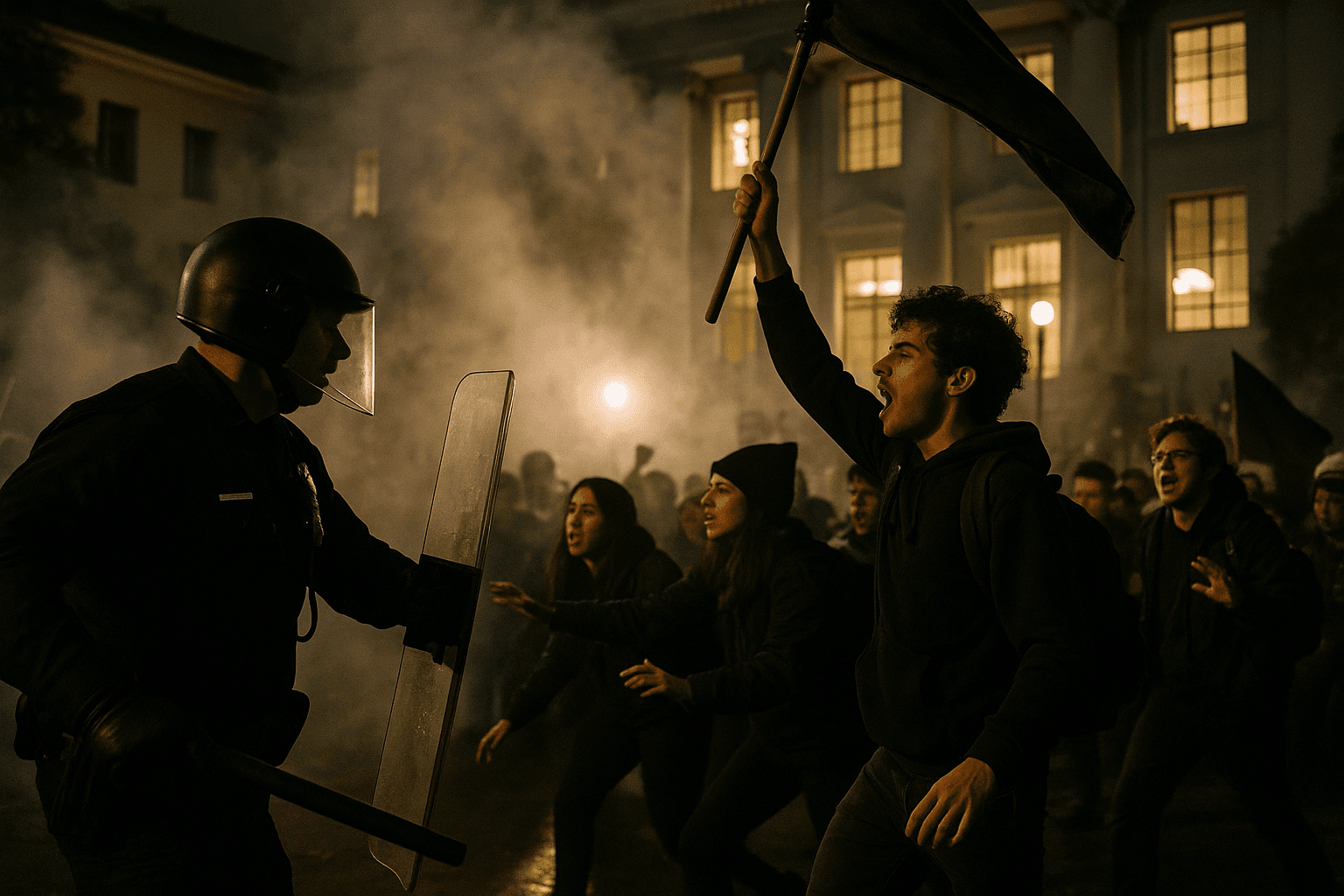Education Department Opens Clery Act Review of UC Berkeley Protests
The U.S. Department of Education has opened a formal review of the University of California, Berkeley to determine whether the school complied with the Clery Act after violent disturbances at a Turning Point USA event on November 10. The inquiry highlights growing federal scrutiny of campus safety practices, with implications for university recordkeeping, policing and student civic life.

The Department of Education’s Office of Federal Student Aid has initiated a review of the University of California, Berkeley to determine whether the institution violated the Clery Act following violent disturbances at a Turning Point USA event on November 10. According to the department’s request, Berkeley must produce daily crime logs, police call logs and other records dating back to 2022 as part of the inquiry.
Berkeley has said it will cooperate with the department and described significant security measures it deployed for the event. The university’s decision to comply brings the case into the federal enforcement apparatus that oversees campus reporting and safety obligations. The records sought by the Education Department will be examined for accuracy, completeness and timeliness as required under federal law.
The Clery Act imposes a duty on colleges and universities that receive federal funds to maintain and disclose information about campus crime and security, and to issue timely warnings to the campus community in certain circumstances. The department’s review signals an intensified focus on whether institutions are meeting those statutory obligations amid a broader federal emphasis on campus safety, protest responses and compliance matters under the current administration.
Beyond the immediate fact finding, the review raises institutional questions about how universities document incidents and manage security for events that attract controversy. Records stretching back to 2022 will allow investigators to assess patterns of reporting and response over multiple years, not only the circumstances of a single event. That wider window could reveal systemic weaknesses in data collection, internal communication or campus policing protocols.
If the Education Department finds noncompliance, institutions typically face requirements to implement corrective actions and to revise policies and procedures. Potential remedies can include mandated training, changes in reporting practices, and civil penalties in some instances. The reputational stakes are also high for public universities that must balance free expression and assembly with safety and order on campus.

The review is likely to intensify debates among students, faculty and trustees about the balance between protecting public safety and preserving protest rights. Student activists and civic groups have argued in recent years that heavy handed security responses can chill lawful dissent, while university leaders and law enforcement have emphasized the need to prevent violence and protect participants. Federal oversight adds another lever that can influence how campuses set policies, allocate resources and train personnel.
This inquiry also has potential political ripple effects beyond Berkeley. Federal scrutiny of a high profile public university could set expectations for other campuses and shape legislative and regulatory conversations about higher education oversight. Local and state officials who fund or govern public institutions may face pressure to review their own practices in light of federal findings.
The Education Department has not released a timeline for completing the review. The outcome will determine whether corrective directives are issued and could contribute to a broader reassessment of how universities balance transparency, safety and civic engagement in an era of heightened campus contention.


